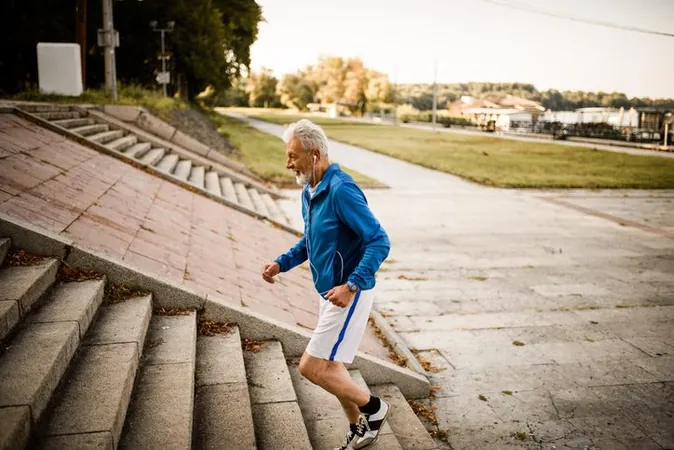
Unlocking Life: How Exercise Could Be the Key to Surviving Colon Cancer!
2025-06-03
Author: Olivia
In a groundbreaking revelation, a new study demonstrates that structured exercise might dramatically change the prognosis for individuals battling advanced colon cancer. Forget everything you thought you knew about exercise and health—it's time for some jaw-dropping updates!
A Game-Changer: The CO.21 Challenge Study
Published in The New England Journal of Medicine, the CO.21 Challenge study, co-led by oncologist Christopher Booth from Queen's University and Kerry Courneya of the University of Alberta, tracked nearly 900 patients with Stage 3 or high-risk Stage 2 colon cancer. These participants had already undergone surgery and chemotherapy, but what came next was utterly transformative.
Exercise Equals Hope: The Results Speak Volumes!
Divided into two groups, one followed a rigorous structured exercise program under professional guidance, while the other received only educational materials about exercise and nutrition. The results? Those who committed to exercising enjoyed a staggering 37% lower risk of death and a 28% lower risk of their cancer resurfacing or new cancers developing. That's a life-saving difference!
The Numbers That Matter: A Life-Saving Statistics!
To break it down: for every 16 patients engaging in the exercise program, one avoided cancer recurrence or a new cancer entirely. Even more compelling, for every 14 enrolled, one additional life was saved. These figures aren't just numbers; they're stories of hope.
A Visionary Leader with Personal Stakes
For Booth, these results are especially rewarding. A former competitive runner, he has pursued this research since 2007, driven by a passion for running and a desire to uncover the truth about exercise's impact on cancer recovery. As he puts it, “Exercise is now a significant treatment option, not just a way to enhance quality of life.” He’s even hinted that these findings could rival the benefits of certain cancer medications!
More Than Just Words: A Call for Action!
Booth emphasizes that simply providing patients with information isn’t enough; exercise must be prescribed and integrated into their treatment regimen, ideally with the support of an exercise therapist to help them navigate their "exercise medicine." This approach could usher in a revolutionary trend in cancer treatment.
Breaking Ground: Who Can Join This Movement?
This study focused on patients who were either inactive or minimally active prior to joining. They chose a variety of aerobic exercises, with most selecting brisk walks, three to four times a week for 45 to 60 minutes. It's clear: you don't need to become a gym rat to reap the benefits; even moderate activity can lead to monumental changes.
In a world where cancer rates are on the rise, could a simple regimen of exercise be the new beacon of hope for patients? The evidence certainly suggests exercise might just be the lifesaver we've all been searching for.









 Brasil (PT)
Brasil (PT)
 Canada (EN)
Canada (EN)
 Chile (ES)
Chile (ES)
 Česko (CS)
Česko (CS)
 대한민국 (KO)
대한민국 (KO)
 España (ES)
España (ES)
 France (FR)
France (FR)
 Hong Kong (EN)
Hong Kong (EN)
 Italia (IT)
Italia (IT)
 日本 (JA)
日本 (JA)
 Magyarország (HU)
Magyarország (HU)
 Norge (NO)
Norge (NO)
 Polska (PL)
Polska (PL)
 Schweiz (DE)
Schweiz (DE)
 Singapore (EN)
Singapore (EN)
 Sverige (SV)
Sverige (SV)
 Suomi (FI)
Suomi (FI)
 Türkiye (TR)
Türkiye (TR)
 الإمارات العربية المتحدة (AR)
الإمارات العربية المتحدة (AR)